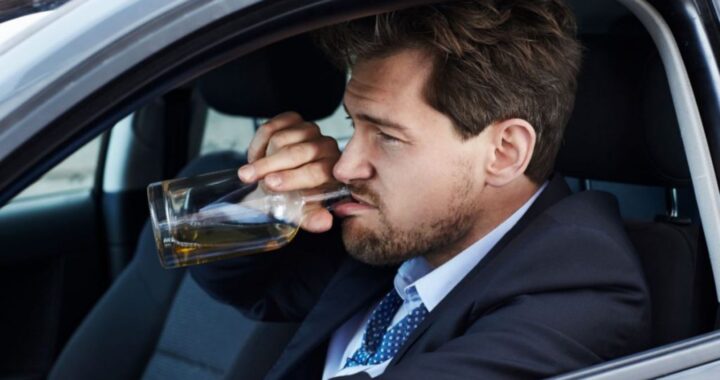Glitz and Glamour of Casinos: How Gambling Became Embedded in Pop Culture

For over a century, casinos have captivated the public imagination, both alluring and appalling us with their mix of glamor, vice, and the lure of easy money. As gambling online at NineCasino – and the accompanying risks – became intertwined with entertainment, casinos embedded themselves in popular culture. Today, that influence permeates media from films to music and beyond. But how exactly did casinos come to occupy such a prominent place in pop culture?
Early Days: Las Vegas and the “Fabulous” 50s
Long before Las Vegas became known as the Entertainment Capital of the World, it was just a sleepy town in the Nevada desert. Things began to change in 1931 when Nevada legalized gambling. Seemingly overnight, casinos began springing up on Fremont Street, luring gamblers with promises of blackjack, roulette, and slot machine jackpots.
During World War II, the Los Angeles-based mob expanded their operations to Las Vegas. Gangsters like Benjamin “Bugsy” Siegel built opulent casino-hotels like The Flamingo, naming it after his girlfriend Virginia Hill. Las Vegas became a playground for the rich and famous, attracting the likes of Frank Sinatra, Dean Martin, and Sammy Davis Jr. to perform and mingle in this glitzy oasis in the desert.
The 1950s cemented Las Vegas’ reputation as a gambling mecca and tourist destination. As nuclear tests lit up the surrounding skies, the casinos lit up the Strip, dropping millions on eye-catching marquees and neon signs. Pop culture began to take note: Elvis sang “Viva Las Vegas,” and films like Oceans 11 featured Las Vegas as more than just a backdrop.
Rise of the Anti-Hero: Outlaws, Cheats and Gamblers
As gambling shifted from the shadows to the mainstream, pop culture spotlighted the morally ambiguous characters that haunted the edges of casino culture. The 1961 film The Hustler introduced audiences to “Fast Eddie” Felson (Paul Newman), a talented but arrogant pool hustler whose quest to beat legendary player Minnesota Fats leads to his downfall.
These anti-heroes – talented but flawed, unable to resist temptation – populated films like The Cincinnati Kid (1965), California Split (1974), Rounders (1998) and 21 (2008). Some cheat the system, some buckle under the pressure, but all are undone by their own fatal flaws. Their appeal lies not just in their talent, but in their recklessness and repeated failures.

Yet pop culture also highlighted the risks of temptation. The 1973 film The Gambler portrayed the dangerous spiral of college professor Axel Freed (James Caan) as he borrowed from loan sharks to fund his gambling. As his debts mount, the glamor of Reno’s casinos give way to something much darker.
Las Vegas on the Big and Small Screen
From star-studded heist films like Oceans 11 (1960) and Bugsy (1991) to grittier fare like Casino (1995) and Leaving Las Vegas (1995), Hollywood continues to use Las Vegas as a setting that practically overflows with glitz, grit, temptation, and consequence.
Yet the influence of casinos on pop culture extends well beyond the Sin City limits. Television embraced the high-stakes drama of gambling across genres from westerns like Maverick (1957) to crime dramas like Las Vegas (2003).
Today, casino culture permeates reality TV in shows like Celebrity Poker Showdown and Keeping Up With the Kardashians, where trips to Las Vegas make for flashy, drama-filled episodes. Even teen shows like Gossip Girl and Beverly Hills 90210 have featured episodes where characters let loose during reckless weekends in Las Vegas.
Casinos in Music: From the Rat Pack to Today
With their mix of glamor and edge, casinos also infiltrated the music scene, starting with the advent of the lounge singer and the Rat Pack. Frank Sinatra, Dean Martin, Sammy Davis Jr., and other crooners played to packed showrooms along the Strip in the 50s and 60s. Sinatra’s “Luck Be a Lady” became an enduring ode to taking a gamble on love, while Elvis had a hit with “Viva Las Vegas,” an ode to the city and its “bright light city gonna set my soul gonna set my soul on fire.”
As musical genres from jazz to hip hop evolved, casinos remained a popular lyrical theme across generations of musicians. Fellow Rat Packers like Nat King Cole and Bobby Darin referenced dice games and roulette wheels. The gambling references spanned musical styles from country star Kenny Rogers in “The Gambler” to punk rockers The Clash singing “I’m going to the casino” in “Lost in the Supermarket” to rapper Pitbull’s high energy anthem “Hotel Room Service.”

Pop stars like Lady Gaga and Christina Aguilera have name-dropped Las Vegas as a party destination in lyrics, while hip hop artists from Jay-Z to Drake use gambling as a metaphor in their songs. Acts from Barry Manilow to Jennifer Lopez sign on for lucrative residencies at Strip venues. Clearly, the lure of Las Vegas continues to captivate musicians and audiences alike.
Legacy of Casinos in Pop Culture
References to casinos and gambling have become deeply embedded across every aspect of popular culture over the past 70 years, shaping public perceptions with images of glamor, temptation, consequence, and the ever-elusive promise of hitting the jackpot. For better or worse, casinos remain the ultimate metaphor for risk and reward in music, film, and media. Their legacy seems assured thanks to the allure of fast money, good times, and bad behavior that Vegas’ neon lights continue to spark in the collective pop culture imagination.

 Everything You Need to Know About Car Transport for a Big Move
Everything You Need to Know About Car Transport for a Big Move  Why DUI Accidents Demand The Expertise Of A Lawyer
Why DUI Accidents Demand The Expertise Of A Lawyer  Bikini Underwear: Finding the Perfect Fit for All-Day Comfort
Bikini Underwear: Finding the Perfect Fit for All-Day Comfort  How to Satisfy Your Taco Cravings in Minutes by Ordering Tacos Online
How to Satisfy Your Taco Cravings in Minutes by Ordering Tacos Online  Finding a Luxury Resort in Belize
Finding a Luxury Resort in Belize  How to Create Lasting Wellness by Supporting Those Around You
How to Create Lasting Wellness by Supporting Those Around You